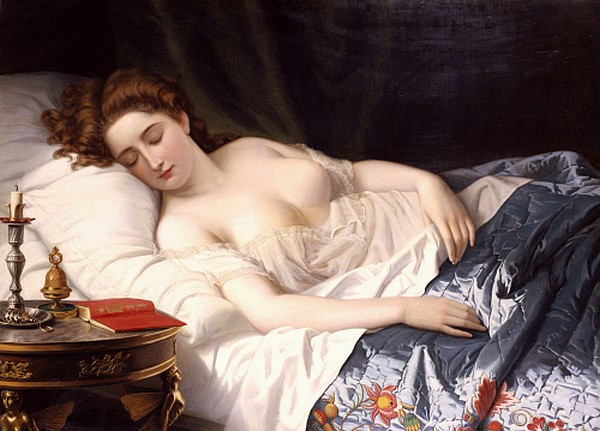
Same title, different songs. That's not unusual with Schubert's songs, a name can be shared by two (or three, or four) songs. In those cases, it often happens that one of the songs becomes "the other one". Let's try: Ständchen. Did you think of this gorgeous song from Schwanengesang? Well, I was referring to the other Ständchen, our song today.
During the first decades of the 19th century, translations of many works by Shakespeare were published, they had been descovered not long ago by the best-informed circles; Let us remember, for instance, how Wilhem Meister devotes his energies to Hamlet. Schubert also took an interest in the English writer and composed three lieder with his texts, all of them in July 1826, while spending the summer with the Schobers in Währing. The house should have a good library, but it's also possible that Schubert get the translations in a more direct way: Ferdinand Mayerhofer and Eduard Bauernfeld, translators of Trinklied, D 888 (talking about same titles and different songs) and An Silvia respectively, were his friends; Bauernfeld could also have provided the translation of Ständchen, D 889, by August von Schlegel. In any case, The Two Gentlemen of Verona (which includes the text of An Silvia) and Cymbeline (which includes that of Ständchen) were published in William Shakespeares sämtliche dramatische Werke, übersetzt im Metrum des Originals [The complete dramatic works of William Shakespeare, in metrical translation] between 1825 and 1827.
We talk previously about Cymbeline, in reference to another of its songs, Fear no more the heat or 'the sun, by Gerald Finzi. On that occasion we talked about Imogen, who has fled her home to save her life; Today, we find her still living in his father Cymbeline palace; Cloten, the son of the second wife of King Cymbeline, courts her. Cloten brings his musicians to Imogen's door early in the morning to sing her. Note that this Ständchen is not a serenade, but an aubade; the German term ständchen refers to the place where it's sung, not to the time.
Cloten says to his musicians:
Come on; tune: if you can penetrate her with your fingering, so; we'll try with tongue too: if none will do, let her remain; but I'll never give o'er. First, a very excellent good-conceited thing; after, a wonderful sweet air, with admirable rich words to it: and then let her consider.
Then the musicians sing the song that Schubert musicalized two hundred years after Shakespeare wrote it; The lark sings at dawn and the piano becomes a lark to accompany a light, delightful melody, irresistible even if its aim is to wake you up really early. Well, I should have said "irresistible depending on the singer". It seems that Imogen sleeps little; When she says good night to her maid, it's midnight, and she ask her to wake her at four. So probably she has already get up when Cloten arrives, but he doesn't know it, and no one likes to be awakened by a forte. Dear gentlemen: the initial "Horch, horch!" [Hark, hark!] should be gentle, and the same applies for the "steh auf" [arise] at the end, repeated several times; It should become a interesting suggestion.
So, some of the recordings I listened to choose the one I was sharing were disqualified for being too energetic. The reason that has disqualified more recordings, however, was the chosen music score. Schubert wrote a very short song, just one verse, as Shakespeare did, but the publisher Diabelli commissioned to the actor and writer Friedrich Reil the text for two more verses. This second edition of the score is the most performed, and I prefer the original version, lighter and more evocative.
Among the short versions that wake up delicately I chose that of tenor Robin Tritschler, I'm glad to introduce a new singer on Liederabend; Iain Burnside accompanies him. Do you thing that this song could be a nice morning alarm music?
Und Phöbus, neu erweckt,
Tränkt seine Rosse mit dem Tau,
Der Blumenkelche deckt;
Der Ringelblume Knospe schleusst
Die goldnen Äuglein auf;
Mit allem, was da reizend ist,
Du süsse Maid, steh auf!
Steh auf; steh auf!
And Phoebus 'gins arise,
His steeds to water at those springs
On chaliced flowers that lies;
And winking Mary-buds begin
To ope their golden eyes:
With every thing that pretty is,
My lady sweet, arise:
Arise, arise.













Comments powered by CComment